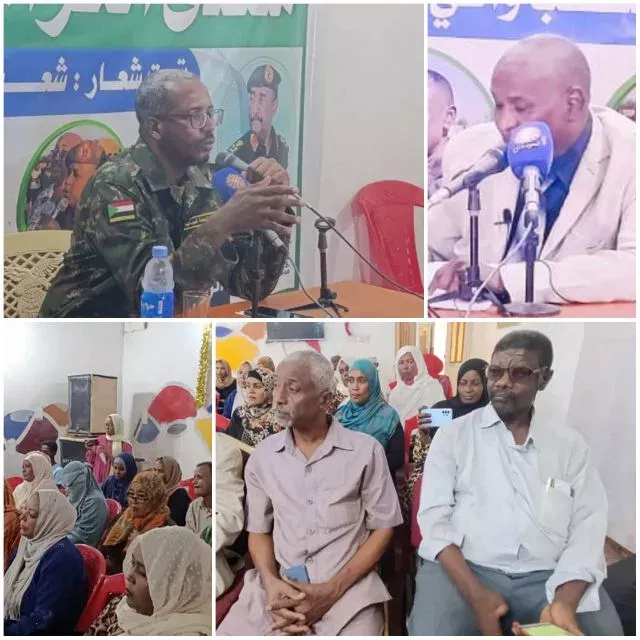Through the Al Karama Forum, the new trends of the April 15 war… analysis and vision confirm that the new war requires malicious diplomacy and plans to save the militias and stop the victories of the Sudanese army.

🟢 In the hall of the General Administration of Culture, Media and Communications, a conference entitled “New directions for the April 15 war” took place, where the public was eagerly awaited. The conference was professionally presented by Professor Mohamed Hamdna Allah Hamed and Dr. Khaled Bashir Abdullah, who addressed pressing issues related to the current situation in Sudan.
🟢 Professor Muhammad Hamdna Allah addressed the terrible crimes committed by rebel militias, highlighting the support that countries like the UAE provide to these oppressive groups. His speech was impassioned, describing these actions as a direct threat to the safety and dignity of citizens.
In his speech, Muhammad Hamdna Allah highlighted that these militias are using demographic change as a weapon to control the situation in the country, adding that the Sudanese citizen has become more aware of the serious challenges they face.
🟢 As Dr. Khaled Bashir explained how to build the Sudanese state, emphasizing that the country needs intellectual awareness to resolve the current crises. He also explained that if the situation continues like this, millions of Sudanese will be in danger, particularly in the face of calls for the dismantling of the military institution.
🟢 Dr. Khaled also reviewed the dangers posed by Iran, considering it more dangerous for the Arab world than Israel. He conducted a careful analysis of the growing risks in the region, linking what is happening in Sudan to broader conflicts in the region. He stressed that many countries, including Egypt and Qatar, play an undeclared role in supporting stability, despite the difficult circumstances Sudan is going through.
🟢 The conference ended with a strong call for peace and tolerance, with speakers calling for the urgency of caring for the Sudanese people, emphasizing that these communities need support and assistance. This dialogue was not just a presentation of the crises, but rather an invitation to reflect on how to address the challenges facing the country in the short term. If the ideas presented are adopted, we can begin a journey towards building a better future for Sudan and its people.






